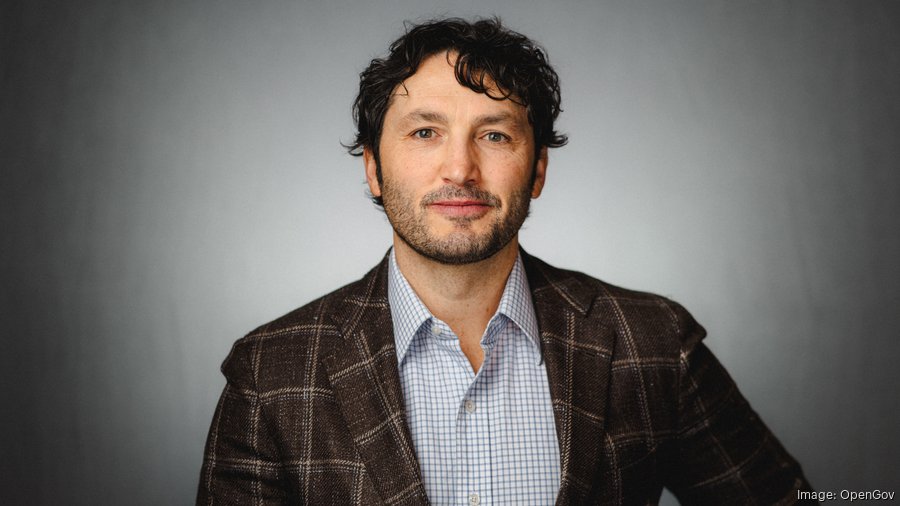Listen to this article 4 min
More than a decade after its founding, a San Francisco startup that develops software for governments is being acquired by Cox Enterprises in a deal that's worth $1.8 billion.
OpenGov announced the deal on Tuesday with Cox, which has held a minority stake in the startup since 2019 when the conglomerate participated in OpenGov's $51 million Series D round.
The company had raised just shy of $200 million over the past twelve years and was last valued $750 million in 2021 when it raised $50 million in a Series D extension, which Cox also participated in.
Its other investors also included Andreessen Horowitz, Founders Fund, Emerson Collective, Draper Associates, 8VC, Sway Ventures, Thrive Capital, ACME Capital, Cthulhu Ventures, Lauder Partners, Ashton Kutcher and Shervin Pishevar, according to PitchBook.
Cox's deal to scoop up OpenGov is one of the Bay Area's largest recent acquisitions of a venture capital-backed company.
Last year, Databricks agreed to purchase MosaicML for $1.3 billion, as Reuters reported. Both companies are based in San Francisco.
Australian software giant Atlassian announced last year that it would buy San Francisco-based video communication startup Loom for $975 million, Bloomberg News reported.
A recent report on global M&A activity from PitchBook shows that deal count and value have both declined since 2021 when the total value reached nearly $4.7 trillion. Last year, that figure dropped by around 35% to just under $3 trillion.
In 2022, OpenGov acquired another government software startup, Iowa-based Cartegraph Systems, for an undisclosed amount. Cox helped underwrite that deal, CEO Zachary Bookman told me.
"They became the largest investor in OpenGov through that deal," Bookman said. "And we collaborated very closely. They see the vision. They love and share the mission. We have shared culture and values. And we thought, let's consummate the marriage and go really big."
OpenGov's software can be used by for a range of government-related needs including budgeting, accounting, procurement, asset management and permitting.
The company will launch a product for requisitions soon, Bookman said. That's in addition to developing and rolling out more features powered by artificial intelligence.
"We're baking AI into our product roadmaps and into how we work," Bookman said. "Oftentimes these are small things just designed to make life easier for our customers. Get rid of the rote, mechanical work and elevate our nation's public servants to more strategic thinking, to higher value work, and get them out of the spreadsheets or out of the documents or out of the duct tape and bubble gum."
Bookman also wants to integrate AI systems into its own internal workflows to make its operations more efficient.
"We're training on it and we're investing in it," Bookman said. "It's part of our overall cloud vision. How do we help governments modernize, bring in the 21st century, and deliver on their promise to their communities and their residents?"
The company doesn't provide any products for human resources and elections, though, and most likely won't venture into those sectors for the foreseeable future, Bookman said.
He co-founded OpenGov with Joseph Lonsdale and Dakin Sloss in 2012.
OpenGov said it has close to 1,900 customers in every state across the country, including one-third of the local governments in California.
In the Bay Area, OpenGov counts Alameda, Burlingame, Milpitas, Cupertino and Menlo Park as customers. Around the state, its customers also include Colusa County, Santa Cruz County, Orange County, Santa Barbara and Los Angeles.
"We have many of the great cities in America, and we would do anything to work with San Francisco. It's a funny story, we actually tried to give them software. Literally give it to them. We tried to sell it to them early on, about a year in," Bookman told me, but San Francisco wasn't interested at the time and even declined to try OpenGov's software for free.
Despite being founded and headquartered in San Francisco, its hometown government has proved elusive as a customer.
"We just want to build the best products and do as much good as possible. And when it's the right time or the right place for (San Francisco), we'll be here and nothing would make us more proud than to work with our hometown," Bookman said. "I'm a champion of San Francisco. When so many friends and allies have moved to, you know, Texas or Florida or New York or other tech communities, we've stayed right here and we're proud of it."





